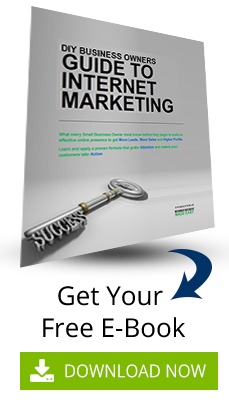 Here’s another great article from Copyblogger. In this article, we will learn how to crowd-publish contents without asking for money. This article was written by Matthew Turner.
Here’s another great article from Copyblogger. In this article, we will learn how to crowd-publish contents without asking for money. This article was written by Matthew Turner.
If you read the headline, “Portland Entrepreneur Raises $13 Million by Enticing 62,000 People to Buy His Cooler,” which part fascinates you?
How about, “7,000 Hungry Folks Raise $55,000 for Potato Salad Project?”
I imagine, if you’re anything like the majority, those large amounts of money stand out. After all, $13 million is a gigantic amount of cash, as is $55,000 for potato salad.
But whenever I come across crowdfunding campaigns like these, it is the crowd of people who band together that captures my attention.
As a content creator, imagine what you could learn from 62,000 individuals. Or the 25,000 people who supported Amanda Palmer. Or the 15,000 enthusiasts who helped Ryan North bring Shakespeare to life.
Don’t get me wrong, watching your bank account bulge with cash must feel wonderful, but if you focus on the crowd — well, that’s a source of valuable content.
Turning crowdfunding into crowd-publishing
Cramped on the end of a table in a stifling London pub, I sat across from my buddy, Arnold.
“You were my inspiration for The Successful Mistake,” I said, referring to my latest book.
“How so?” he asked.
“After our Skype chat the other day, I thought about your story. You know, the one about your big mistake. I realized everyone I’ve asked for advice shared similar mistake-riddled tales.”
“Okay, so what’s that got to do with your book?”
Sipping my pint of London-expensive beer, I smiled.
“Think about all the entrepreneurs with similar stories to share. Imagine the journey I could craft, full of anecdotes from some of the world’s finest minds. And what if they shared my work with their own audiences? After all, it’s a book they’re a part of — a book they’re invested in.”
“That’s bloody brilliant,” Arnold said, raising his glass.
“And best of all, picture the people I’ll meet and form friendships with along the way.”
I spent the next couple of weeks on cloud nine, excited by the possibilities:
- Connecting with amazing peers, leaders, and go-getters
- Gathering dozens of inspiring stories to help craft my content
- Bonding with a crowd of people eager to share our collaboration with their friends and fans
Without realizing it, I set out on a crowdfunding adventure, only I didn’t consider “funding” part of it. My entire mindset focused on the crowd: an amazing group of people to learn from and connect with — who could help transform my content from good to great.
You’re a fellow digital media producer, right? Doesn’t the thought of forming connections with your idols sound exciting?
What I’ve done is something you can start today, no matter what your next idea is — a blog post, an ebook, a podcast, a video series, a presentation, or an online course.
I ask you to consider:
- How can I involve other people in this?
- How can I crowd-publish the living daylights out of it?
Expand your approach to content
I’ve interviewed more than 150 entrepreneurs for The Successful Mistake, and this list continues to grow.
When I step back to consider the awe-inspiring people I’ve met, I freak out. It has changed my entire perspective on how to create content, approach projects, and implement ideas.
I operate under the assumption that anything I do on my own has the power to be good, but in order for it to be great, I need to involve others.
At the end of this post, I have a challenge for you. But first, here are three steps that show you how to crowd-publish a piece of content.
Step #1: Connect with influencers
I remember the day I started The Successful Mistake, staring at my laptop — 10, then 20, then 50, then 100 names popped into my mind.
You’re the same, right? You have dozens of people you’d love to connect with. If I ask you to create a list of 10 people right now, wouldn’t you be able to name 20?
The Successful Mistake gave me a reason to reach out to those I admire, but you don’t need to write a book.
Whatever your next idea is for a piece of content, you can include other people. The first step is to introduce yourself to those you want to get to know.
Here are eight tips to help you get started:
- Create your list. Open a blank spreadsheet and add all of your potential contacts. When you come across new folks you love, add their names, email addresses, and websites to this table. Be warned, you’ll soon have a long list of people you can’t wait to meet.
- Keep it simple. My early outreach for The Successful Mistake was excessive. People don’t have time for extra explanations, so keep your requests simple. Say hello. Explain who you are and your proposal. Say goodbye. That’s it.
- Make it easy. And make it easy to say “yes.” Do you need to chat on Skype or in person? Can your collaborator contribute over email with a quick quote? Your job is to make it impossible to say no. Do not overcomplicate the process.
- Less is more. I reiterate: Keep your email short and to the point. My early requests were long and pointless. If possible, use the five-sentence approach, and if you need to include more information, provide a link to a landing page dedicated to your project.
- Be creative. You’re a creative person, so use this skill to your advantage. An email may be the ideal way to communicate for some, but consider using a video message, an audio message, or a hand-written letter. Think outside the box, because the people you’re after get a lot of requests.
- Always follow up. Don’t be afraid to follow up on emails you’ve sent. In fact, be afraid not to. I’ve connected with people an enormous amount of times after following up. They don’t intentionally misplace your original message, but it happens. A follow-up note reminds them who you are and confirms your serious objectives.
- Stay organized. I speak from experience; you don’t want to make an introduction to the same person twice. It’s embarrassing, so be sure to update your spreadsheet and stay on top of whom you email and when you do.
- Don’t take anything personally. People will ignore you. People will say no. It doesn’t make you a bad person. Maybe they’re busy. Maybe they never saw your email. Maybe it isn’t for them. They do not have to reply or say “yes” to you. Be polite, thankful, and a lovely human being. This goes for life in general, by the way.
Start this process today. Not only will you form new connections and develop your own crowd, but these inspiring folks may introduce you to their peers — and who knows where that could lead.
Step #2: Weave a cohesive story
Which of the following two headlines do you think would be the most popular?
My Favorite Content Marketing Tools
30 Content Marketing Tools These Top Influencers Can’t Live Without
I’d place my money on the latter because, from a reader’s perspective, he will receive a list of tools from a variety of leaders rather than a single person. And you get to work with 30 stories about the best content marketing tools.
Of course, it’s still your job to bring the individual thoughts and opinions you gather into a cohesive narrative. In general, I use these three approaches.
1. The journalism approach
When it comes to creating fresh, detailed content, and sharing in-depth insights, there’s no better place to look than news stories. You’ll discover dozens of examples where the writer takes the reader on an epic journey, sharing the stories of others in a focused way.
For instance, check out Yael Grauer’s article on Copyblogger about simplifying complex content. She writes with her own voice and style but uses the expertise and stories of others to add more insight.
When writing books and long-form articles, this is my preferred approach. However, you can apply the same methods when creating podcasts and videos.
2. The list approach
Here’s the easiest and quickest way to share many expert opinions in a single piece of content.
A well-written list post is invaluable.
In today’s short-attention-span world, scannable content is necessary. And it’s not just your audience who benefits, either; writing a list post also simplifies the contribution process for your collaborators.
They’re able to reply within an email, offer a few quotes, and get on with their days. No jumping on Skype. No interview. You get everything you need, with little fuss or mess.
3. The one-on-one approach
Popular with podcasts and videos, the one-on-one approach builds relationships.
A 30-minute Skype conversation with someone helps develop a meaningful friendship. This is the approach I took with The Successful Mistake, and it’s one of the best decisions I’ve ever made. It has also led to my own podcast.
Of course, the value isn’t only the podcasts and videos. Andrew Warner transcribes his interviews (like this one with Brian Clark), and The Paris Review shares their famed interviews with writers and artists in written form.
Whichever approach you take, and whether you create a blog post, podcast, ebook, or video, have fun and mark it with your own style.
Step #3: Make your content easy to share
Have you ever written a blog post you love — one you spent hours carefully crafting — only to watch it dwindle away with little engagement? I have. Plenty of times. It hurts, doesn’t it?
This is where you’ll experience the true power of the crowd, because when you co-create with your crowd, they become invested in your content, as well.
Once you’ve already formed connections with influencers, and they’ve helped turn your good content into great content, make sure you offer them as much value as possible when they land on your site to check out your creation.
Create a specific landing page with a relevant, useful download that helps your audience along their own journeys, and provide additional ways to consume your content — perhaps an audio version of your blog post or a transcript of your podcast.
Remember, you want to grow and develop your own crowd, so when visitors stop by to see what you’re doing, seduce the heck out of them.
Bonus tip: expect nothing
I know I stated this point earlier, but it’s important. The people you reach out to have been where you are. They get it. They understand. They want to help.
However, they have a finite amount of patience, and the moment you start expecting or demanding something from them is the moment they get turned off.
Reach out, ask for a favor in a simple way, but never, ever, under any circumstance, act like they owe you something. They don’t.
ARTICLE SOURCE: This content is syndicated news that can be used for your research, and we hope that it can help your productivity. This content is for educational purposes and is not made for any kind of commercial purposes of this blog.

